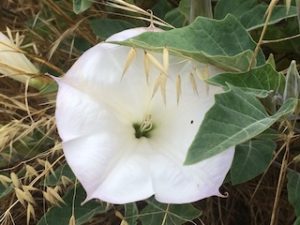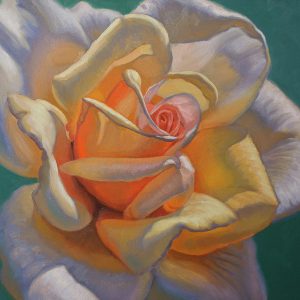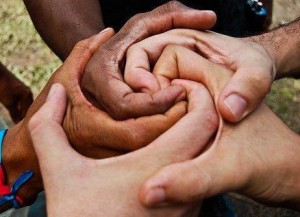 The Columbia City Yoga on-line Moving into Meditation class met this morning. We explored the expressions of compassion. We reflected on the question of “What is enough?” We contemplated Jon Kabat Zinn’s assertion that “It is indeed a radical act of love just to sit down and be quiet for a time by yourself.” We explored how it is to rest as awareness.
The Columbia City Yoga on-line Moving into Meditation class met this morning. We explored the expressions of compassion. We reflected on the question of “What is enough?” We contemplated Jon Kabat Zinn’s assertion that “It is indeed a radical act of love just to sit down and be quiet for a time by yourself.” We explored how it is to rest as awareness.
We continued to draw from Oren Jay Sofer’s book: Your Heart Was Made for This: Contemplative Practices for Meeting a World in Crisis with Courage, Integrity, and Love. Oren describes contentment as a “quieter form of happiness.” Mindfully experiencing contentment can help us discern between needs and wants. It frees us from the habits of incessant wanting long enough to enjoy the restorative pleasure of contentment.
We heard Jon Kabat-Zinn’s thoughts on how mindfulness meditation is a “radical act of love.” In his article, This Loving-Kindness Meditation is a Radical Act of Love,” Jon explains how loving-kindness meditation can lighten the struggle with afflictive mind states, so that we can avoid becoming overwhelmed by them. Hewrites “with practice direct observation itself, . . . becomes the embodiment of loving-kindness and compassion all by itself. . . ”
 We heard Rosemerry Wahtola Trommer’s poem, And for Today, That’s Enough. Rosemerry’s poem affirms the love we become by opening our hearts “again and again.”
We heard Rosemerry Wahtola Trommer’s poem, And for Today, That’s Enough. Rosemerry’s poem affirms the love we become by opening our hearts “again and again.”
Welcome. Last week we explored the many expressions of compassion: nurturing, receptive, active, fierce and protective. Practicing self compassion fosters resilience and enhances our responsiveness to others’ pain. Resilience sustains our ability to hear the cries of the world and to respond to them. For me, this means working through the difficult emotions around the human and environmental crises that are happening all around us.
In reading Oren’s writings on contentment this week, I recognize that my experiences of contentment restore my spirit. They move me from feeling depleted to a more balanced and resilient state. I love the first quote in the chapter from Abraham Joshua Heschel: Just to live is holy. Just to be is a blessing. Rabbi Heschel escaped the holocaust in 1940 when he emigrated to the United States. He became a civil rights activist and worked alongside Dr. Martin Luther King.
Oren describes contentment as a “quieter kind of happiness.” He describes how:
 We touch a truer contentment by being mindful of when our needs are sufficiently met. . . . With attention you can recognize when you’ve had enough and appreciate the understated pleasure of contentment. . . . this capacity to recognize what is enough is radical. . . Distinguishing fundamental needs from superfluous wants, contentment frees us from longing for something different or better.
We touch a truer contentment by being mindful of when our needs are sufficiently met. . . . With attention you can recognize when you’ve had enough and appreciate the understated pleasure of contentment. . . . this capacity to recognize what is enough is radical. . . Distinguishing fundamental needs from superfluous wants, contentment frees us from longing for something different or better.
This week I’ve been reflecting on what is enough? I’ve tried to be mindful of the restlessness of wanting. My wanting is a powerful habit. Thankfully, mindfulness can interrupt the steady stream of cultural invitations to buy, to be entertained, to be distracted. In his article, This Loving-Kindness Meditation is a Radical Act of Love, Jon Kabat-Zinn writes:
By stopping and intentionally falling awake to how things are in this moment, purposefully, without succumbing to our own reactions and judgments, and by . . . willingness to take up residency for a time in the present moment in spite of all our plans and activities aimed at getting somewhere else, completing a project or pursuing desired objects or goals, we discover that such an act is both immensely, discouragingly difficult and yet utterly simple, profound, hugely possible after all, and restorative of mind and body, soul and spirit right in that moment. It is indeed a radical act of love just to sit down and be quiet for a time by yourself.
Wow: to take up residency . . . in the present moment . . . to sit down and be quiet for a time is a radical act of love!
 In the simple and challenging moments of sitting meditation, I am often content. And I am blessed with quiet happiness. Oren reminds us that:
In the simple and challenging moments of sitting meditation, I am often content. And I am blessed with quiet happiness. Oren reminds us that:
Contentment can arise simply because you are here and alive. . . . It can be enough simply to be aware. . . . This contentment doesn’t depend on the content of experience. It arises from appreciating awareness. This contentment shifts our vision from a narrow focus to a wider field, from the objects of awareness . . . to the space of awareness itself. As a musician or poet values the space between sounds, we can value the space between things.
Here is Rosemerry Wahtola Trommer quoting Mary Oliver in her poem, And for Today, That’s Enough:
I tell you this
to break your heart,
by which I mean only
that it break open and never close again
to the rest of the world.
—Mary Oliver, “Lead”
It is hard
to unfold, day
after day,
to unfold
and open
and bloom.
Even the roses
last only a season.
See how the lilies
drop one by one
their petals
until the table
is a paean
to opening,
but for the naked
pistil, there
is nothing
left to release.
 We are not
We are not
like flowers.
There is
no rest.
It is always
the season
for opening.
And if there
are no petals
around the heart
left to unfold,
then unclose the hands.
And if the fists
are too tightly clasped,
unclose the eyes.
And if
the eyelids
are leaden,
averse,
then breathe
and feel how
inside,
the lungs
open and
open again.
Let us “breathe and feel how inside, the lungs open and open again.” Let us enter the space between sounds, the space between things.
I invite you to adjust your posture as you need to be at ease, relaxed, awake. You might lie down or recline in an easy chair. Give yourself some moments to let the body settle. Sense the experience of being just as you are without trying. You might follow the experience of breathing or simply allow experience to be just as it is without directing attention. What’s it like to take the time, to bring presence to the practice of resting as awareness?
 As you welcome experience of all that’s here, in resting deeply, you may notice changes surfacing in your mind, your body. You can acknowledge what is present and come back to resting as awareness.
As you welcome experience of all that’s here, in resting deeply, you may notice changes surfacing in your mind, your body. You can acknowledge what is present and come back to resting as awareness.
There may a quality of deep equanimity. Awareness itself may notice what happens in the mind. A thought arises: “What’s next?” Seeking what’s next is a natural function of the mind. If seeking is present, you might notice it with kindness. Then come back to resting as awareness itself.
Perhaps you notice a clear mind, a rested body. And once again the return of restlessness or seeking. Kindly recognize this seeking impulse. Return to resting as awareness.
As thoughts continue to arise, you can notice the holding of memories. Can you let your heart open to the mess and beauty of life? Can you experience how it’s all held in this field of restful awareness?
As you allow yourself to explore meditation in this way, you might realize there is no need for doing or a doer. There is an awareness of the body and mind resting as awareness, consciously, knowingly.
 Experience the shift from doing into being. See if you can let things, let yourself be. Allow the breath to express your body’s rhythm, your inter-being with the world. You might “feel how inside, the lungs open and open again” without having to do breathing. Notice what it is like to be breathing?
Experience the shift from doing into being. See if you can let things, let yourself be. Allow the breath to express your body’s rhythm, your inter-being with the world. You might “feel how inside, the lungs open and open again” without having to do breathing. Notice what it is like to be breathing?
In practice we are invited to “take up residency . . . in the present moment . . .” We can “sit down and be quiet for a time [as] a radical act of love!” We can let go, to be at ease and still, to know ourselves as restful awareness.
As we bring this practice to a close we can attune to compassion. We can open our heart minds to all beings and wish them well-being. May all beings be safe. May all beings be well. May all beings know peace. May all beings be free. May all beings know contentment and the grace of restful awareness.

